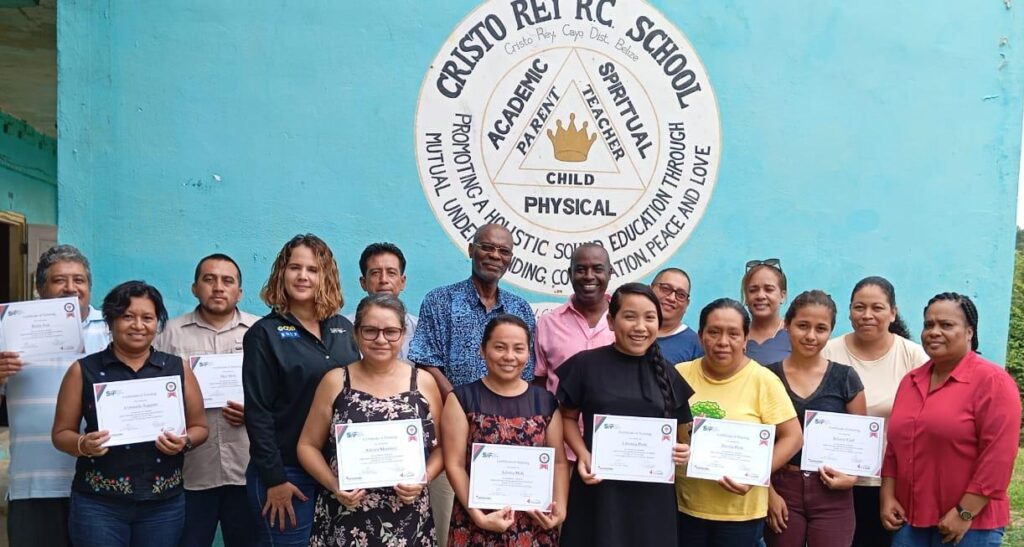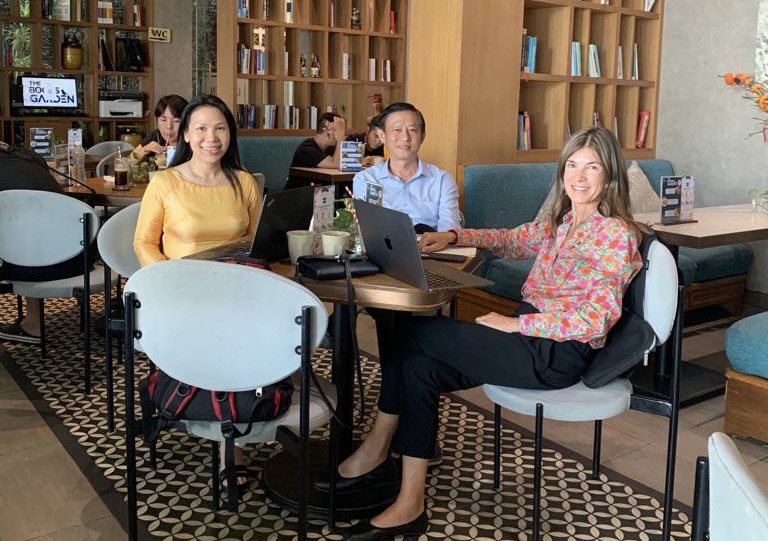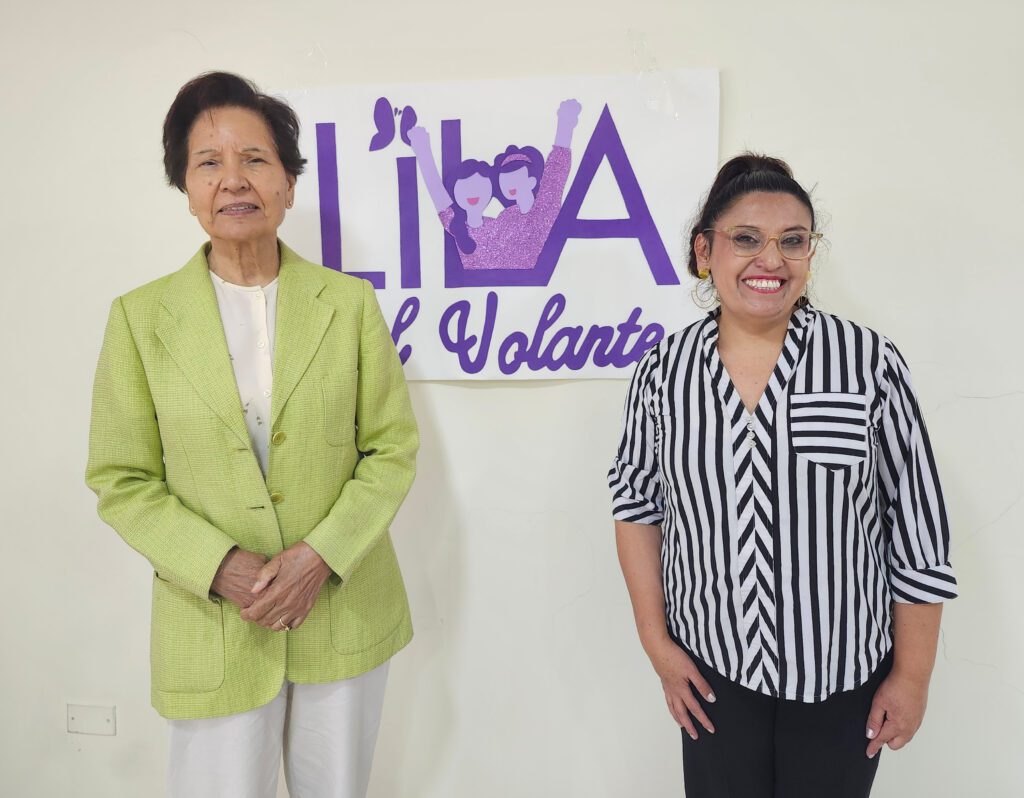Enhancing the Government’s Capacity to Support Farmer Groups in Dominica
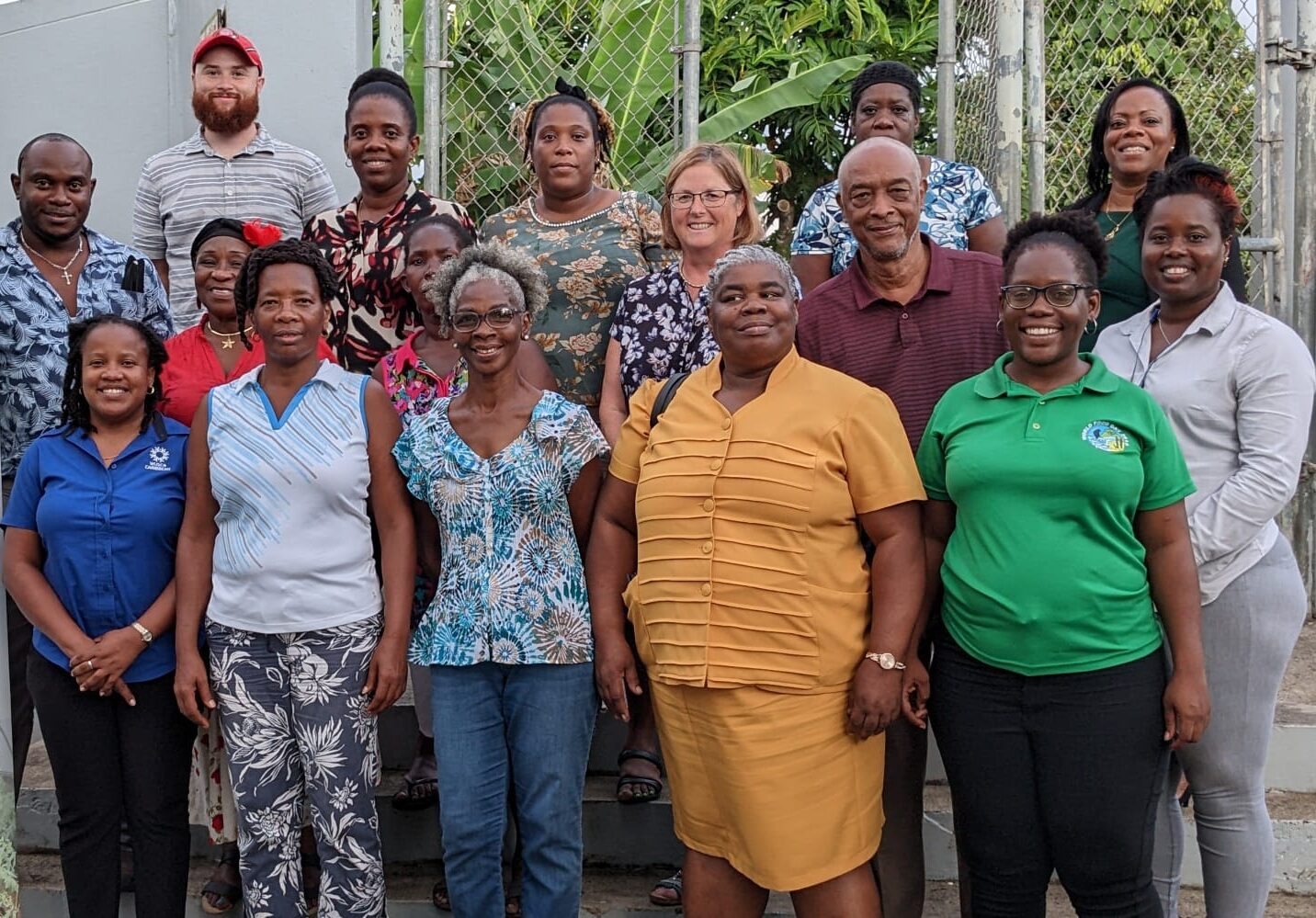
Catalyste+ Advisor Barb Shackel-Hardman posing with leaders of the participating groups and cooperatives in Dominica, and with Felix Finisterre, CCEDM Regional Representative for the ECS.
Focused on the prosperity of women and youth, the Ministry of Agriculture, Fisheries, Blue and Green Economy in Dominica is working to promote sustainable agriculture for equitable economic growth. The Ministry, in partnership with the Sustainable Agriculture in the Caribbean project (SAC) by World University Services Canada (WUSC), requested support from Catalyste+ to assess the challenges small-scale farmer groups face in a sustainable agricultural economy.
Following the COVID-19 pandemic and the devastating effects of Hurricane Maria in 2017, several grassroots and small-scale farmer groups in Dominica struggled with governance. Some had been set up for a specific short-term project or in the aftermath of a natural disaster but were unable to sustain themselves with a limited foundation.
Barb Shackel-Hardman, a Catalyste+ Advisor (CA), developed a series of assessment tools for cooperatives, organizations, and extension agents to evaluate their governance structures. Eight groups and two cooperatives were assessed, exposing several factors that contributed to the lack of member recruitment, retainment, and engagement. The assessments also found gaps in their capacity to manage operations, lead strategic and operational planning, and conduct regular meetings.
“Meeting farm women in their communities to hear their experiences was very rewarding. Providing training on governance helped women become stronger board members of their organizations,” shares Barb about her time with the farmer groups.
These findings led to the development of a women and youth-focused comprehensive work plan for training and support to farm organizations. The plan included a series of group and one-on-one workshops on strategic planning, development of KPIs, leadership and communication skills, group dynamics, conflict resolution, and board governance. The interviews and training motivated the groups and cooperatives to reactivate and engage their membership.
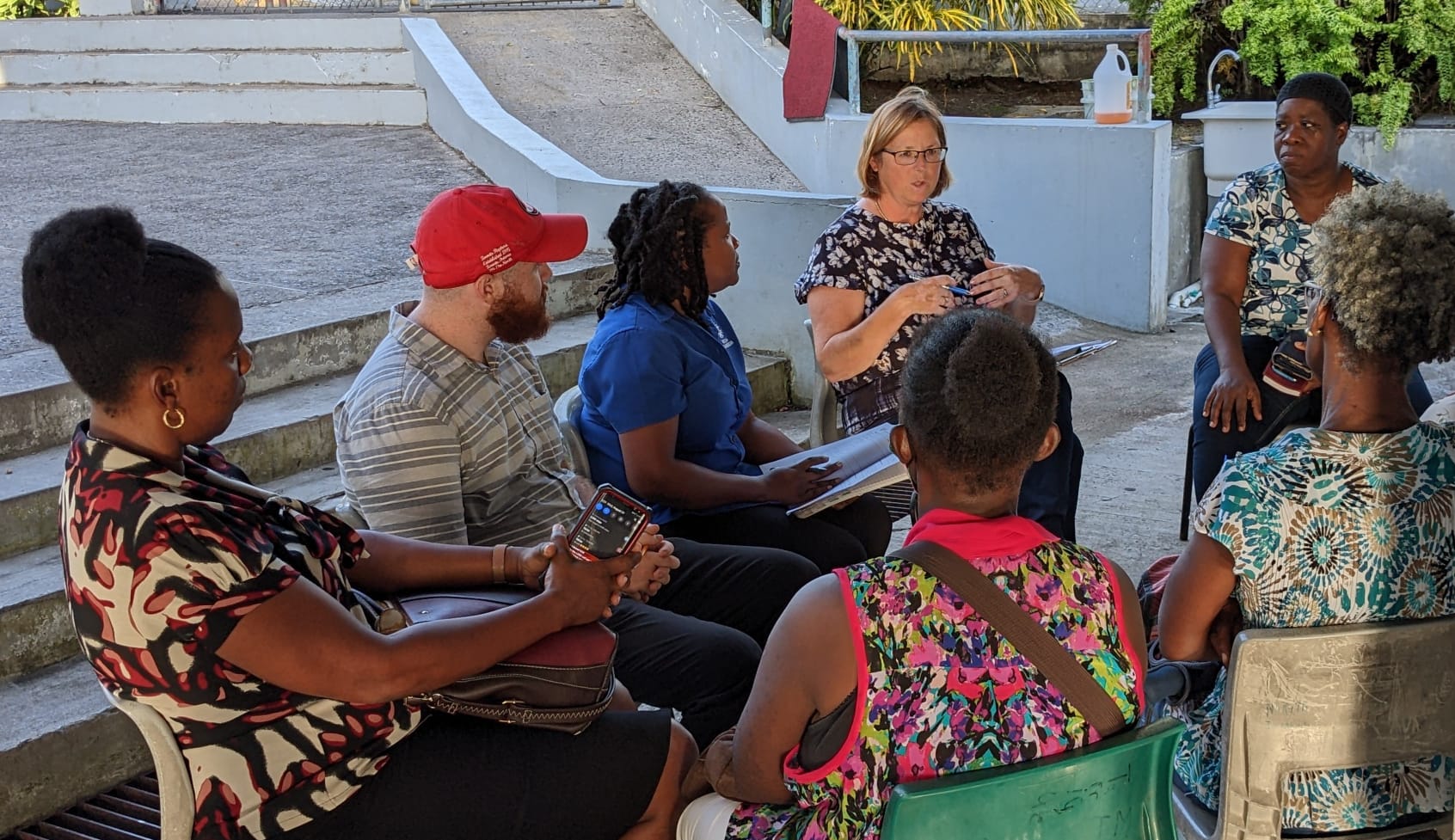
Active farmer groups can advocate for women and youth farmers and support them to overcome several barriers, like access to capital, land, or labour-saving mechanisms. In the long term, improving governance in the agricultural sector will lead to more women-led farmer groups realizing new market opportunities and becoming more effective advocates for their needs, further promoting women’s agency.
Cooperatives and farmer groups enable sustainability by addressing gaps in governance. These solutions position women and youth to independently lead their own efforts and advocate for their causes, eventually reducing their dependence on the Ministry.
At the end of the training, the CA Barb asked them to describe the activities they would take back to their groups from the sessions, which consisted of developing their strategic plan, community outreach, and organizing their next Annual General Meeting. Leveraging the momentum started by the training, the Ministry engaged the farmer groups in more capacity-strengthening activities.
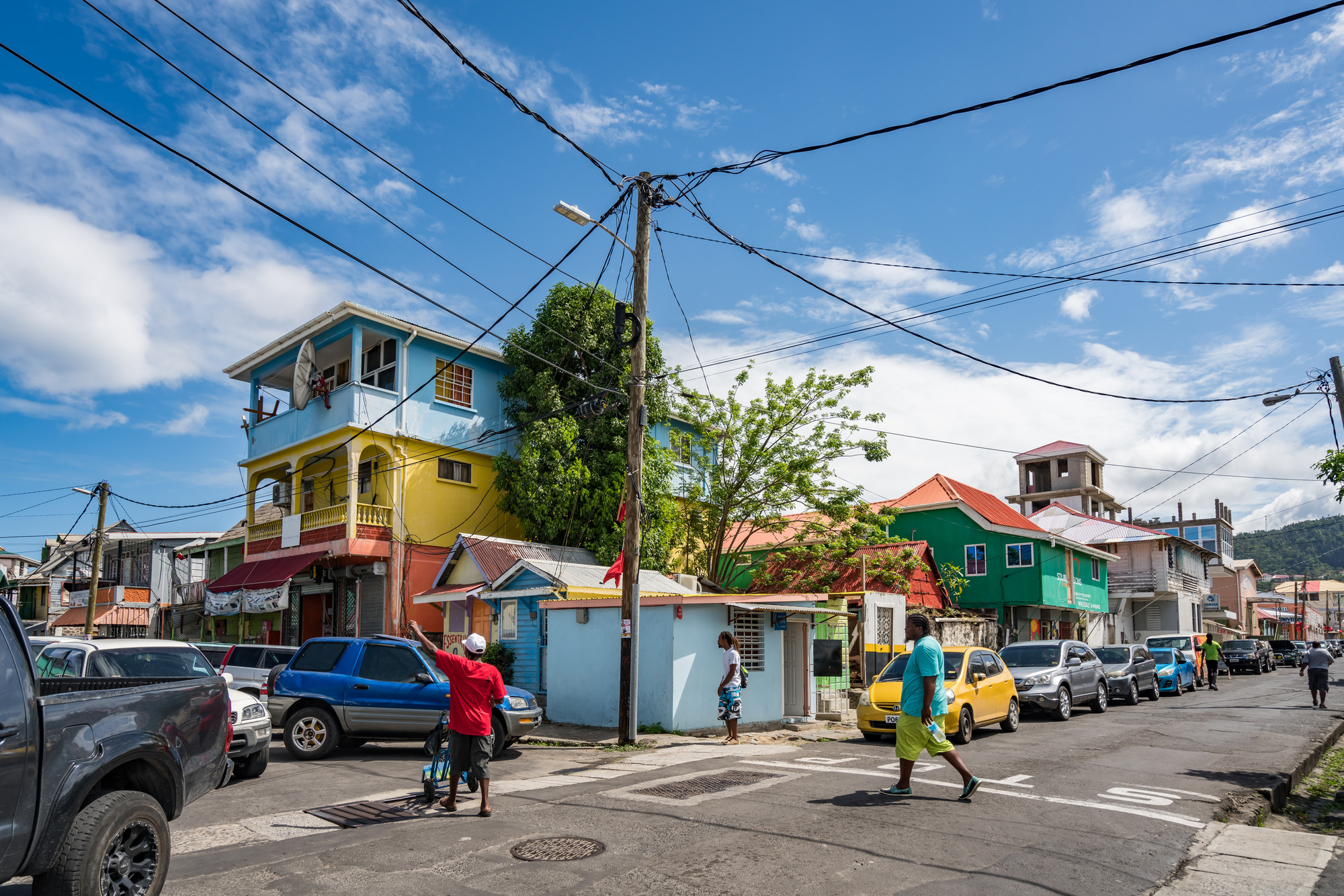
The CA Barb provided the Ministry with the knowledge and capacity to assess the governance gaps and deliver services that were responsive to their specific needs. The Ministry now has a clear path forward to improve the structures of the farmer groups and cooperatives with assessment tools to continue this important work in Dominica.
Barb has also started working with the Ministry of Agriculture in St. Lucia to provide the same group governance assessments. They’ve chosen a smaller number of organizations to do a more in-depth analysis of the overseeing government ministries, group leadership, and membership to identify capacity gaps and future activities. Seeing these early successes, Dominica and St. Lucia may also present these practices and tools to other Caribbean countries in the Organization of Eastern Caribbean States.
